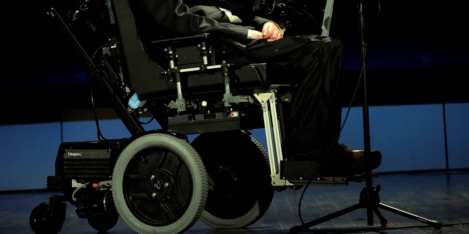March 20, 2018
Vienna ranks highest for quality of living, but emerging cities doing more to attract mobile talent
 Cities in emerging markets, though challenged by economic and political turmoil, are catching up with top ranking cities following decades of investing in infrastructure, recreational facilities and housing in order to attract talent and multinational businesses, finds Mercer’s 20th annual Quality of Living survey. Meanwhile, many of Europe’s cities still offer the world’s highest quality of living and continue to remain attractive destinations for expatriates on assignment, despite economic volatility due to uncertainty around Brexit and increased political volatility in the region overall. Vienna tops the ranking for the 9th year running and is followed by Zurich (2), Auckland and Munich in joint 3rd place. In 5th place Vancouver completes the top five and is the highest ranking city in North America. Singapore (25) and Montevideo (77) are the highest-ranking cities in Asia and Latin America respectively. London – the highest ranked UK city – scores top marks in areas like access to public transport, and the variety and quality of theatres and restaurants, but has lower scores for air pollution and traffic congestion.
Cities in emerging markets, though challenged by economic and political turmoil, are catching up with top ranking cities following decades of investing in infrastructure, recreational facilities and housing in order to attract talent and multinational businesses, finds Mercer’s 20th annual Quality of Living survey. Meanwhile, many of Europe’s cities still offer the world’s highest quality of living and continue to remain attractive destinations for expatriates on assignment, despite economic volatility due to uncertainty around Brexit and increased political volatility in the region overall. Vienna tops the ranking for the 9th year running and is followed by Zurich (2), Auckland and Munich in joint 3rd place. In 5th place Vancouver completes the top five and is the highest ranking city in North America. Singapore (25) and Montevideo (77) are the highest-ranking cities in Asia and Latin America respectively. London – the highest ranked UK city – scores top marks in areas like access to public transport, and the variety and quality of theatres and restaurants, but has lower scores for air pollution and traffic congestion.







 The challenge to achieve gender equality at work isn’t made any easier by the attitudes of some employers. Although men increasingly want to be more present at home, currently fathers are
The challenge to achieve gender equality at work isn’t made any easier by the attitudes of some employers. Although men increasingly want to be more present at home, currently fathers are 
 Artificial intelligence systems need to be accountable for human bias at AI becomes more prevalent in recruitment and selection, attendees at the Employers Network for Equality & Inclusion’s annual conference have been warned. Hosted by NatWest, the conference, Diversity & Inclusion: The Changing Landscape heard from experts in ethics, psychology and computing. They explained that AIs learnt from existing data, and highlighted how information such as performance review scores and employee grading was being fed in to machines after being subjected to human unconscious bias. Dr David Snelling, the programme director for artificial intelligence at technology giant Fujitsu, illustrated how artificial intelligence is taught through human feedback. Describing how huge data sets were fed into the program, David explained that humans corrected the AI when it used that data to come to an incorrect conclusion, using this feedback to teach the AI to work correctly. However, as this feedback is subject to human error and bias, this can become embedded in the machine.
Artificial intelligence systems need to be accountable for human bias at AI becomes more prevalent in recruitment and selection, attendees at the Employers Network for Equality & Inclusion’s annual conference have been warned. Hosted by NatWest, the conference, Diversity & Inclusion: The Changing Landscape heard from experts in ethics, psychology and computing. They explained that AIs learnt from existing data, and highlighted how information such as performance review scores and employee grading was being fed in to machines after being subjected to human unconscious bias. Dr David Snelling, the programme director for artificial intelligence at technology giant Fujitsu, illustrated how artificial intelligence is taught through human feedback. Describing how huge data sets were fed into the program, David explained that humans corrected the AI when it used that data to come to an incorrect conclusion, using this feedback to teach the AI to work correctly. However, as this feedback is subject to human error and bias, this can become embedded in the machine.










 A third of UK workers (31 percent) say their employer has little or no interest in their mental health, despite the fact that a fifth (20 percent) are stressed out on a daily basis, and for almost a third (33 percent) the issue is so bad that they’re considering looking for a new role. This is according to a new study of nearly 1,300 workers by ADP which found that workplace stress peaks amongst younger employees, with 22 percent of workers under 35 saying they experience stress every day, and 42 percent saying that it is so bad, they’re considering jumping ship. This contrasts with only 19 percent and 26 percent respectively of those over 35 who feel this way, suggesting employees become better at managing stress as they get older.
A third of UK workers (31 percent) say their employer has little or no interest in their mental health, despite the fact that a fifth (20 percent) are stressed out on a daily basis, and for almost a third (33 percent) the issue is so bad that they’re considering looking for a new role. This is according to a new study of nearly 1,300 workers by ADP which found that workplace stress peaks amongst younger employees, with 22 percent of workers under 35 saying they experience stress every day, and 42 percent saying that it is so bad, they’re considering jumping ship. This contrasts with only 19 percent and 26 percent respectively of those over 35 who feel this way, suggesting employees become better at managing stress as they get older. 
 Online messaging is the most common way for millennial bosses to communicate with their direct reports, with over half (55 percent) preferring to use this digital method, followed by email at 28 percent, a new survey claims. Only 14 percent said their favoured way to communicate is in person, and 3 percent said via phone. As millennials (born 1981-1996) increasingly moving into management positions, the new Korn Ferry survey also found that when interviewing for management positions, millennials say that making an impact on organisational culture is most important to them, with salary being the least important. The survey also found that compared with Gen Xers and Baby Boomers, knowing what is coming next is critical for millennial bosses. Nearly three quarters (74 percent) said a clear advancement path (e.g. next two positions) is more important for millennial bosses, with 49 percent saying it is much more important.
Online messaging is the most common way for millennial bosses to communicate with their direct reports, with over half (55 percent) preferring to use this digital method, followed by email at 28 percent, a new survey claims. Only 14 percent said their favoured way to communicate is in person, and 3 percent said via phone. As millennials (born 1981-1996) increasingly moving into management positions, the new Korn Ferry survey also found that when interviewing for management positions, millennials say that making an impact on organisational culture is most important to them, with salary being the least important. The survey also found that compared with Gen Xers and Baby Boomers, knowing what is coming next is critical for millennial bosses. Nearly three quarters (74 percent) said a clear advancement path (e.g. next two positions) is more important for millennial bosses, with 49 percent saying it is much more important.







March 20, 2018
Enter the MIPIM bandwagon, towed by pink elephants
by Anna King • Comment, Property, Technology
(more…)